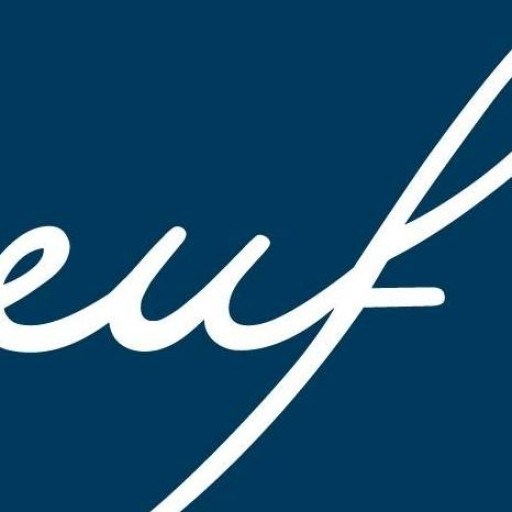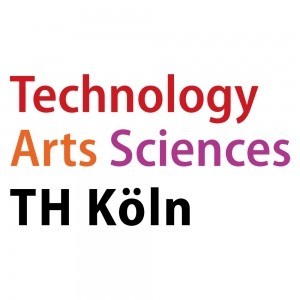Photos of university / #btucs
Environmental and Resource Management at Brandenburg University of Technology Cottbus-Senftenberg offers a comprehensive interdisciplinary education designed to prepare students for challenges related to sustainable development, environmental protection, and efficient resource utilization. The programme emphasizes the integration of natural sciences, engineering, economics, and social sciences to address complex environmental issues holistically. Students will gain a solid foundation in environmental sciences, ecology, resource management, and environmental law, complemented by practical skills in environmental monitoring, data analysis, and environmental impact assessment. The curriculum combines theoretical knowledge with practical application through laboratory work, field studies, and project work, enabling students to develop innovative solutions for environmental management in various sectors such as energy, transportation, agriculture, and urban development. The programme also focuses on the careful management of natural resources, including water, soil, and renewable energy sources, preparing graduates to contribute effectively to sustainable development initiatives. Collaboration with industry partners and participation in research projects provide real-world experience and opportunities for networking within the professional community. Graduates of this programme will be equipped to work in environmental consulting firms, governmental agencies, research institutions, and private companies dedicated to sustainability. The programme is designed to foster critical thinking, problem-solving skills, and a proactive approach to environmental challenges, ensuring students are well-prepared for leadership roles in the field of environmental and resource management. With its interdisciplinary approach and strong emphasis on practical skills, the programme aims to produce professionals capable of making meaningful contributions to sustainable development policies and practices at local, national, and international levels.
Educational organisation
All modules in the Master's programme are compulsory elective, which means, the students can choose freely, which kind of study focus they want to do. The students can discuss their curriculum with a mentor, who helps them find the best modules for their study focus and Master's thesis. The only mandatory modules are the introduction module in the study programme and the study project. This study project is a group work, in which students show their scientific skills and improve in project planning and team oriented work.The students also have the opportunity to take a semester abroad. The study regulation is designed in this way so that students can visit one of our partner universities without losing one semester.
Study abroad unit(s)
One voluntary semester abroad in the MSc programmeInternships
No mandatory internshipsForms of assessment
Credits are given according to ECTS. The MSc programme comprises 120 credits, collected as performance verifications of compulsory elective modules.Course objectives
A graduate of the international study programme "Environmental and Resource Management" is qualified for a broad variety of careers. Potential employment opportunities for a graduate of ERM are in environmental administrative and supervisory agencies at community, regional, or federal level or in environmental organisations at the supranational level (e.g. European Union and the United Nations). There is also a good many opportunities to move on to an academic career in universities or other research institutes.In the private sector graduates of this study programme achieve positions in engineering and planning enterprises, energy production companies and in environmental management and research departments, especially in internationally oriented companies as well as in consulting firms. With a main focus on these research fields, they also open up career opportunities in waste water cleansing, garbage collection and recycling management.
In addition to these two sectors, the broad spectrum of environmental study fields is also an ideal foundation for jobs in environmental NGOs.
Language requirements
- TOEFL (550 paper-based, 213 computer-based or 79 internet-based)
- Cambridge Certificate (Advanced or Proficiency, min. grade B)
- IELTS (min. 6.0)
Academic requirements
Qualified Bachelor of Science or equivalent qualification (e.g. FH-Diplom), transcript of recordsEnrolment fees
Students are required to pay an enrolment fee of approx. 259 EUR per semester. This fee includes some services offered by the student services (Studentenwerk Frankfurt/Oder) and the BTU student council. The fee also pays for a semester ticket, which permits free travel on all public transport with VBB in the state of Brandenburg and in Berlin as well as free use of the regional train (RE 18 and 15) to Dresden.Costs of living
The cost of studying abroad can differ significantly from studying in your home country. We recommend that students budget between 550 to 700 EUR per month for accommodation, health insurance, living expenses, books, etc. Of course, this amount depends entirely on the individual lifestyle.Monthly costs:
- rent (incl. utilities): 170-280 EUR
- groceries: 150 EUR
- health insurance, medical fees, medication: 80 EUR
- miscellaneous (clothing, study materials, other activities): 100-200 EUR
You will not need to pay for public transport in Berlin and Brandenburg. The semester ticket for buses and trains operated by VBB is already included in the semester fee.
Job opportunities
There are job opportunities both in town and on campus. Nevertheless, please do not come to Germany expecting to be able to finance your entire studies by working. The study load is high, and it is not always easy to find a part-time job. Non-EU citizens are allowed by law to work for a maximum of 120 days per year. Students who are employed by the university in one of the institutes or departments ("Studentische Hilfskräfte") are exempt from this regulation, but other restrictions apply.Funding opportunities within the university
The International Office is pleased to be able to grant a limited number of scholarships for foreign students. These include exchange scholarships for students from partner universities, scholarships for completion of studies and scholarships involving tutorial work.https://www.b-tu.de/en/international/incoming-students/during-studies/scholarship
Arrival support
The university's International Relations Office assists foreign students with registration and enrolment procedures at the university upon arrival. It also holds an information session at the beginning of each semester covering administrative procedures and cultural events that are offered throughout each semester. The BTU holds an orientation week each October prior to the beginning of classes. During this week, each faculty offers orientation sessions. New students are provided with detailed programme information as well as academic advice and have the opportunity to meet professors and other students at these orientation sessions. The student organisation, OTIWO, offers cultural events throughout this week. Attendance is highly recommended! The university's tutor group "BTU Buddies" and the student council are there to assist English-speaking students in the international programmes. For example, they will accompany the students when registering for health insurance and with municipal authorities.Services and support for international students
To ensure that international students feel comfortable on the BTU campuses and around the cities of Cottbus and Senftenberg, the Student Activities Office, run by the International Relations Office, offers services such as cultural events, excursions, job and career advice, home stays with German families, and much more.For more information, please consult this website. See: https://www.b-tu.de/en/international/incoming-students/during-studies
Furthermore, intensive guidance is provided by professors, lecturers, and programme officers within the study programmes.
Accommodation
Most students live in on-campus student residences. Rooms are mostly either single with a shared kitchen and bathroom or one-room apartments. Prices range from 190 to 270 EUR. More information on accommodation is available at http://www.studentenwerk-frankfurt.de.Private off-campus accommodation is also available. You can rent your own apartment or share with other students. Private accommodation can be found on the Internet at: https://www.b-tu.de/en/international/incoming-students/arrival.








